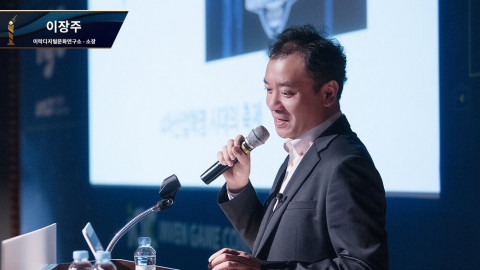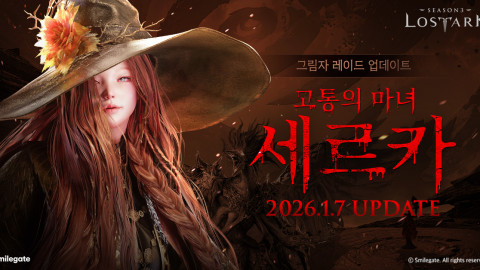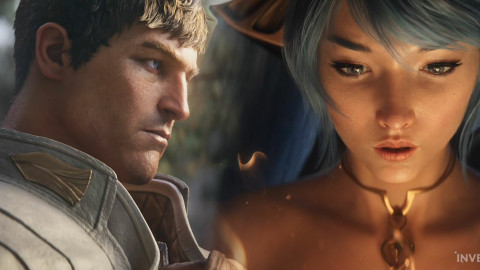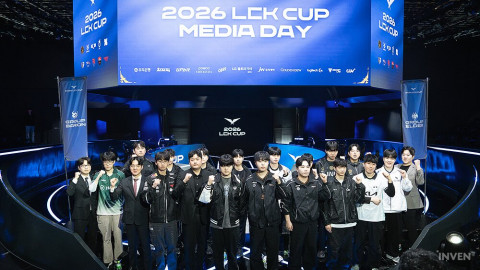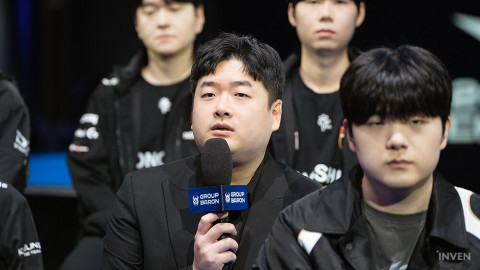
For those that are somewhat aware of what I do as a journalist at Inven Global, they would know that my content mostly revolves around professional League of Legends. As I presume all my peers in my workspace do, I keep a keen eye on other parts of the gaming community as well. Twitch.tv, the biggest video game live streaming site in the world, naturally plays a huge part in my job description, and from time to time, i delve off from League of Legends to find other interesting personalities, even if I may not play their game title.
Meet Jessica Kim, a Valorant content creator signed under Gen.G. I had a chance to speak to Jessica took place at Gen.G HQ in Seoul, Korea, and the words 'relatable' and 'enlightening' would be the two words I'd use to describe the conversation.
It was relatable because I learned that we both had similar upbringings; we both grew up in a predominantly white neighborhood in Canada, were raised by our moms while our dads stayed in Korea to provide for our respective families, and were made sure that we never forgot Korean and our roots by our moms. The latter half of the interview was enlightening, because it shed light on some of the hurdles that Jessica faces as a female streamer, as well as the stereotypes and misogyny that female gamers still face in 2021.

I think it’s safe to presume that a large chunk of the Twitch.tv community have at least heard of your name, but for the audience that may not know who you are, please introduce yourself.
Hello, my name is Jessica. I’m a content creator for Gen.G, and I stream on Twitch, mostly Valorant and a little bit of ‘Just Chatting’.
Being from Toronto myself, I think I can personally relate to your upbringing in Canada. What kind of a person were you growing up?
I grew up around a predominantly white community, with a lot of Jewish people. There weren’t too many Asian people around me, so I always had people following stereotypical European beauty standards, so I felt like I had to change myself to fit in with them. After you learn about the different cultures and what not when you’re older, you become conscious of such things; you don’t know these things when you’re young.
I think my parents were really good at making sure I don’t forget Korean and my roots. Although I lived in Canada for so long, I… want to say that I’m pretty fluent at Korean; it’s better than what you’d expect [laughter]. Overall, I’d say I was a pretty normal kid who’d just hang out with friends and what not.
I wasn’t a big gamer when I was young; gaming wasn’t a part of my life until pretty recently. It’s kind of weird that I stream Valorant [laughter]. I started playing games through APEX Legends. When it first came out, the game just looked pretty cool to me aesthetically. The first time I tried it, the game was so hard that I never really went back to it.
A few months later, I tried it again, because the game was becoming more popular. At that point, I was a ‘Just Chatting’ streamer, and I wanted to do something fun with my friends, so I started playing APEX. Valorant came out a few months after, so I immediately transitioned into it. All of my friends were playing it as well, so it was a natural transition.

How did you manage to balance your education and your streaming career?
It was very hard [laughter]. I had to wake up in the middle of the night to operate in the NA time zones, then have sponsor streams at 8 am in the morning, so I’d have to take these power naps to balance both. It was very stressful; I ate a lot to relieve my stress, so I gained weight, but it’s okay, because I’m working out now [laughter].
When I was preparing for this interview, I read that you had a lot of insecurities that initially gated you from streaming on Twitch. How did you overcome those insecurities?
I wouldn’t say that those insecurities gated me from streaming itself, but I think there are a lot of obstacles, such as hate comments and toxicity. There’s also comparing myself to others, because if you’re doing worse than someone, you think to yourself, “Why am I not doing this great? What can I do to get better and grow my numbers?”
For streamers, the viewership count is something that will always be on the back of our minds, and it’s something that you can’t just blatantly ignore. I feel I was pretty lucky when I first started; I was active and consistent with streaming, so I was lucky enough to get partnered after two months. When I was living overseas, I had to visit Korea, and at that time, I couldn’t stream because I didn’t have a set up. So my viewership went down when I came back, and it felt like no one wanted to watch me anymore. Transitioning into gaming was how I overcame the insecurities of having a low viewership count, because I was actually having fun streaming.

What are some of the reasons that made you choose Gen.G over any other organizations?
I heard that Gen.G was scouting for new content creators, and they told me that they did monitor my streams before they even contacted me. I obviously knew of Gen.G and the values that they represented, with the BLM and AAPI movement, as well as supporting women in gaming. I really appreciated the fact that they actually take initiatives in matters like such, so it wasn’t just about… the money [laughter]. I mean, obviously they pay well, but supporting the people, especially the minority groups was what really drew me to join Gen.G.
I wouldn’t say I was prosperous growing up; my family wasn’t super wealthy. Being a gyopo, I had the typical mindset of studying hard to be successful in life and not have my family worry about me financially. Talking about money can be considered taboo; there were other organizations that did offer me a better salary, but in the end, it came down to how comfortable I can feel representing Gen.G, and not joining an organization that’s more male-dominant.
I think I can relate heavily to the fact that moving back to Korea after growing up overseas can be emotionally burdening. Are you planning to stay in Korea for good?
My parents definitely want it to be permanent, but I’d say it’s a semi-permanent thing. My dad was what people call a ‘Gireogi Appa’ [A Korean term that refers to a man who works in Korea while his wife and children stay in an English-speaking country for the sake of the children's education - Ed.], while my mom was taking care of my sister and I in Canada.
For my parents, that was definitely hard, so since I was close to graduating university at the time and because of COVID, they wanted me back in Korea and spend some time as a family. My sister’s staying here permanently, but I’m planning to move back to North America, because that’s where my life is, and I want to do adult things in the place where I feel at home.
You did a couple of collaboration streams with Nemesis as well. Tell me about that experience.
The collaboration with Nemesis was… strange, but in a good way. We’re such different people; he’s a League of Legends streamer, while I know nothing about that game. He’s a super nice guy, and had a lot of strange but fun stories to share; he told me that he once had Kit Kat with rice [laughter]. Overall, I’d say it was very fun, because for me, I don’t get the chance to meet different people in Korea.
One of the questions that I got from Twitter while preparing for this interview was: What advice would you give Nemesis on getting a girlfriend in Korea [laughter]?
I saw that clip of him getting advice from LS’ grandma [laughter]! Hmm… you have to go out to actually meet people, but with COVID, that’s really hard, and I don’t think he’s the type to really go out anyways. However, if he has any luck meeting people online, then he just has to be himself. I think he has a lovable personality.
One big new Twitch meta that emerged was the hot tub streams. There’s a lot of different opinions about it, but I want to know what you think about this hot tub meta on Twitch.
For me, I definitely understand both sides of the debate. Twitch has always been a gaming platform, so the OG streamers will be on Twitch for gaming. Their argument is, “Why Twitch? There’s other sites for that, you know?” You can call it gatekeeping, but I think it’s more of protecting what’s special to you. I don’t think they’re saying that they can’t stream on Twitch, but for inappropriate reasons, they’re telling the hot tub streamers to take it elsewhere.
I don’t agree with people that get mad from the fact that these hot tub streamers are making money on Twitch, because the money they make isn’t theirs to begin with. I do agree with the people that say that these people aren’t harming you in any way.
My stance on it is that I don’t care; I’m focusing on my stream and my brand, so I don’t have time to worry about those people. My streamer friends also feel the same way; if they stay in their lane, my friends and I will stay in ours.

Do you think that the hot tub meta on Twitch actually emphasizes the stereotypes and sets more obstacles for women in the gaming community?
Girl gamers are already oversexualized and there’s already a lot of misogyny in our community. Hot tub streams were like whatever, but when streamers started doing ASMR fart streams, I was like… “Okay this is getting a little too weird”.
It definitely plays a part, because some people are going to start generalizing all women into this group of streamers, further driving the sentiment that it’s easier for women to make money on Twitch than men. That’s 100% false. We have our own set of obstacles that we have to overcome just to be on the same level as the male streamers.
Because I’m a female gamer, some people always call me ‘boosted’ in Valorant, or I got carried by other people that just want to play with me. There’s always comments of body image and pressure of having to look a certain way. People told me to just ignore them, but I retweeted some of the nasty comments about my body image to show that this is happening. I read the messages, and I just laugh at them, because they think they’re hurting me, but they just look like fools in the end.
I know I’m not the only woman that goes through such things, but most of them choose not to speak up about it, because that will only lead to others saying that we’re attention seeking whores or using other terrible slurs.

What are some of the contents that you have planned for the future?
I’m currently in the process of getting my U.S. visa, so I think that the latest I’ll be moving to LA will be by late August. The Gen.G team in LA is really excited for me to move there; I think they’re a little bit jealous that I’m doing so much with the team here in Korea [laughter]. Once I move back, there will be a lot of collaborations with the streamers there.
As for my own streams, I want to get more serious with Valorant. I play on the NA server, and the ping’s 160 from here. I peaked Diamond 3 in NA and I was one game away from hitting Immortal. Seeing all my friends play in Twitch Rivals was really fun to watch, and it really made me want to be a part of that event as well.
Lastly, are there any shoutouts you like to make?
Without my friends and my boyfriend, I wouldn’t be able to create all this content; especially friends Mark, Christina, Nick, Julia and Akarin. They always try to make time to play with me, help me who I am as a content creator.
I’m also very grateful for my family. It’s rare for an Asian family to support a streamer, so I’m incredibly thankful that they’re so open-minded about it and just letting me live separately.

-

Striving for perfection to achieve excellence in esports
Sort by:
Comments :0


